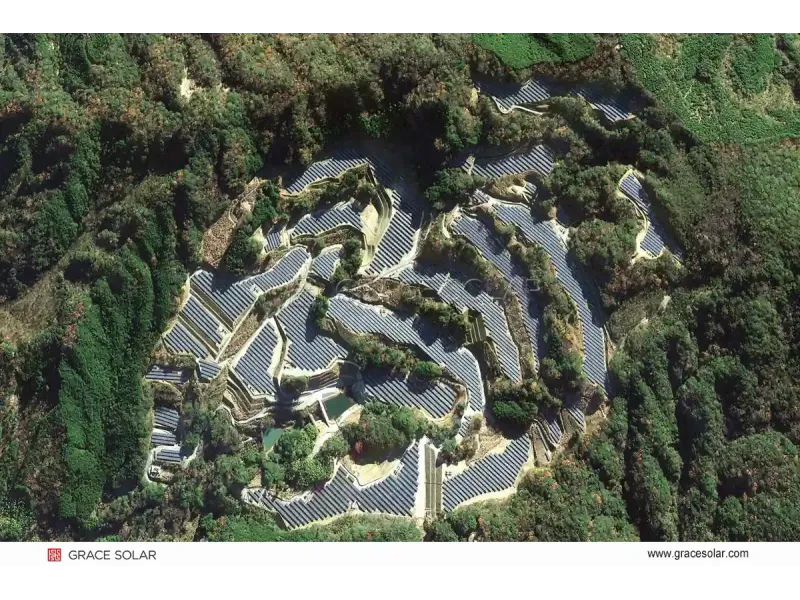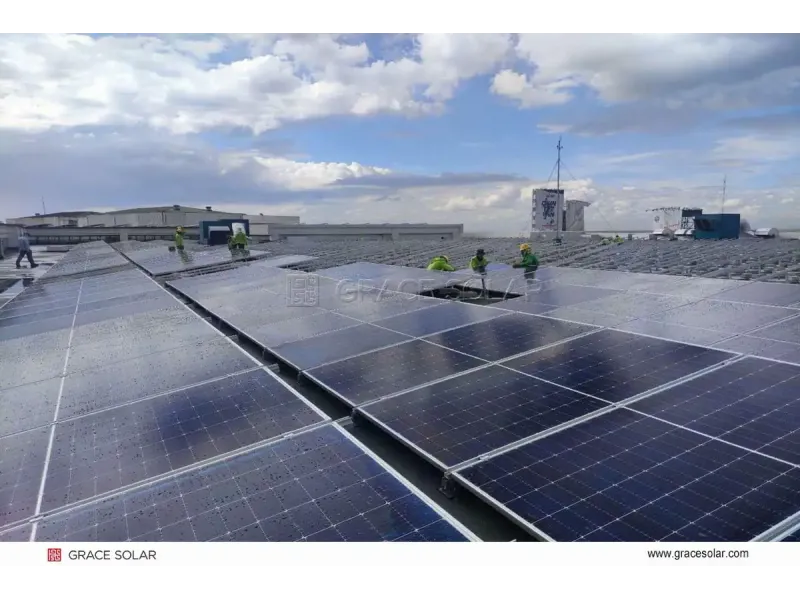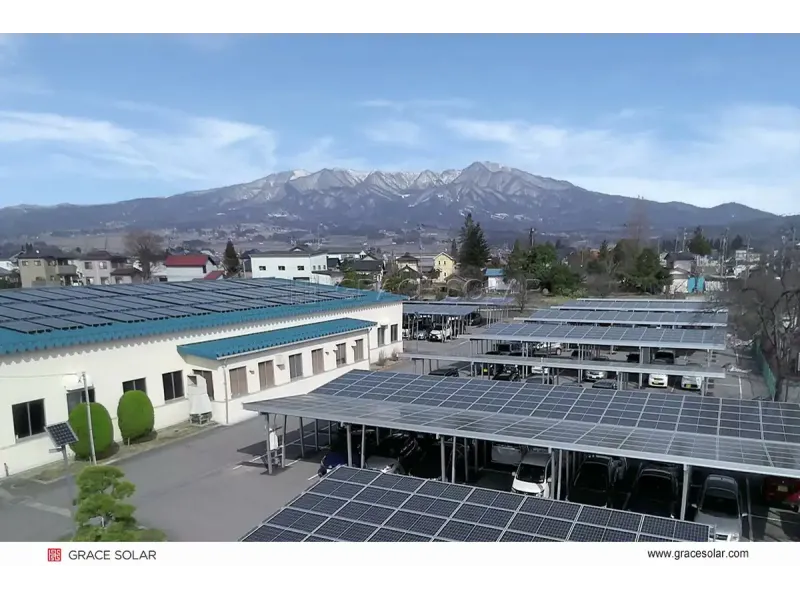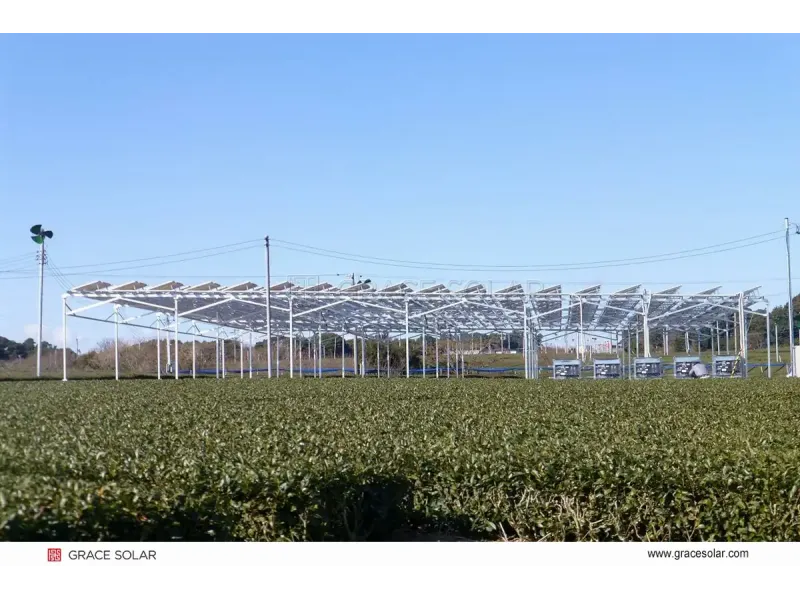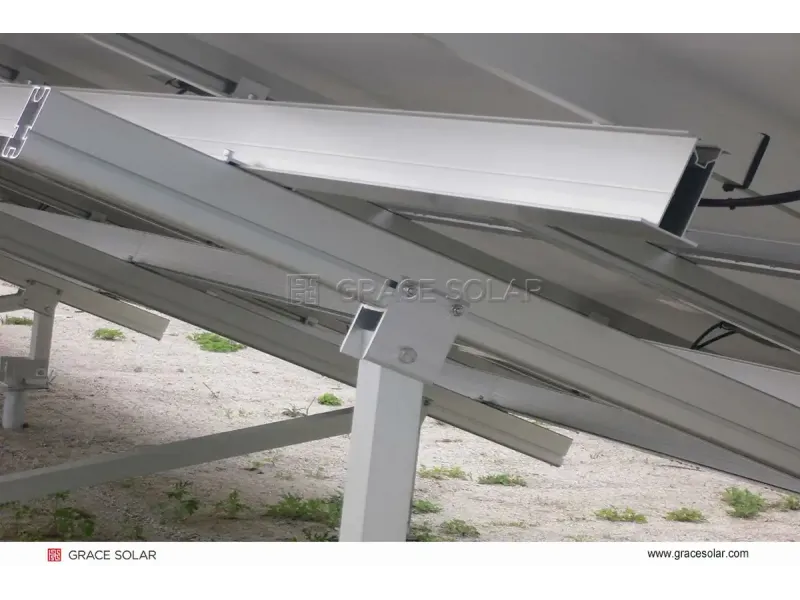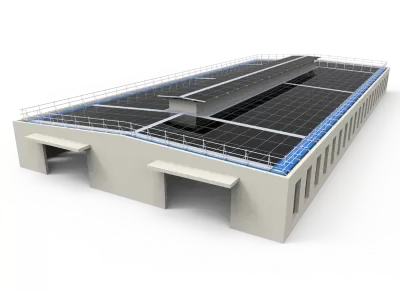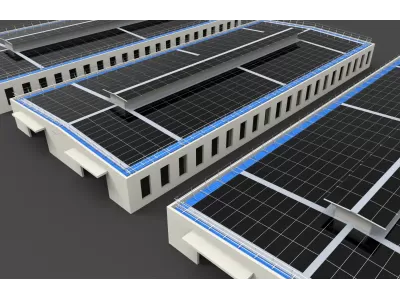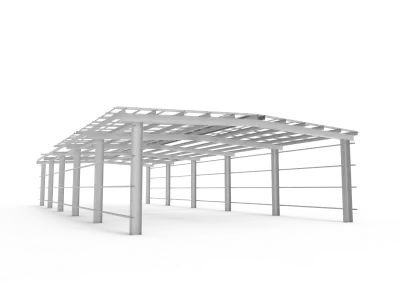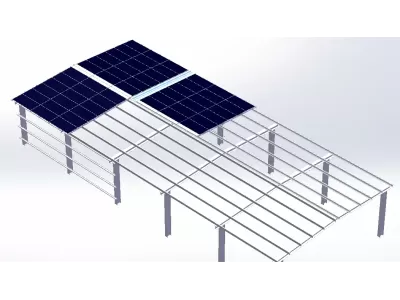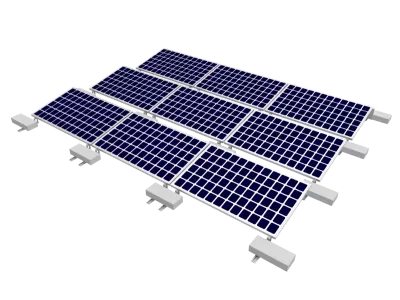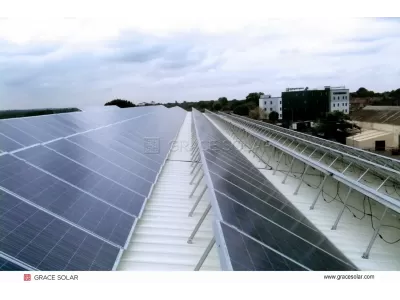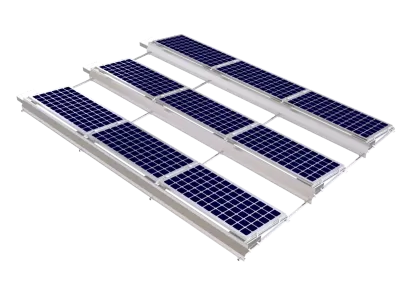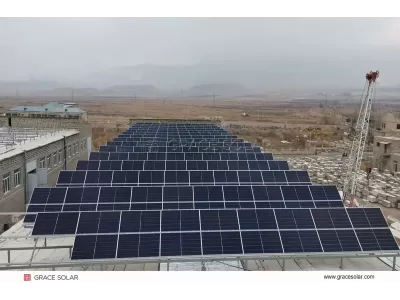![Top 10 Solar Companies in South Africa [Updated 2025] Top 10 Solar Companies in South Africa [Updated 2025]](https://www.bymea.com/image/cache/catalog/Blog/Top%2010%20Solar%20Companies%20in%20South%20Africa-1200x800.webp)
South Africa's Solar Energy Landscape in 2025
South Africa's solar industry has experienced remarkable growth in 2025, driven by ongoing load-shedding challenges, favorable government policies, and decreasing technology costs. The market now features a diverse mix of global manufacturers, local installers, and specialized solution providers. This comprehensive guide explores the top 10 solar companies leading South Africa's renewable energy transformation.
Top 10 Solar Companies in South Africa
1. JA Solar
With global component shipments ranking second in 2024 (38 GW), JA Solar maintains a strong presence in South Africa through its partnership with local manufacturer ART Solar. Their TOPCon modules with 23.2% efficiency perform exceptionally well in South Africa's high-temperature conditions. The company's Durban manufacturing facility has been upgraded to 340MW capacity, supporting local job creation and skills development.
JA Solar has been instrumental in several utility-scale projects across the Northern Cape, providing reliable performance even in dusty conditions. Their anti-soiling technology and robust frame designs make them particularly suited to South Africa's challenging environmental conditions. The company continues to invest in local training programs, developing technical skills within South Africa's renewable energy sector.
2. JinkoSolar
As the world's largest solar module supplier (47.2 GW shipped in H1 2024), JinkoSolar has been instrumental in South Africa's REIPPPP program. Their N-type TOPCon technology dominates large-scale utility projects across the Northern and Western Cape provinces. The company's robust supply chain ensures reliable delivery even during logistical challenges.
JinkoSolar's Tiger Neo series has set new benchmarks for efficiency and durability in the South African market. The company has established strong relationships with local EPC contractors and provides comprehensive technical support for projects of all sizes. Their modules feature enhanced light absorption and better temperature coefficient, delivering superior performance in high-altitude installations common in South Africa's interior regions.
3. Grace Solar
Grace Solar ranks among the top 5 global solar mounting system providers and has established a significant presence in the South African market. With 48GW of cumulative global installations and 15GW annual production capacity, the company brings world-class engineering expertise to South Africa's challenging environmental conditions. Their GS-Light intelligent tracking system optimizes energy production by following the sun's path throughout the day, increasing output by up to 25% compared to fixed systems.
What sets Grace Solar apart is their complete EPC solutions capability and specialized product range designed for different applications. Their ground mount systems withstand high wind loads common in coastal regions, while their roof mounting solutions accommodate various roofing materials popular in South African construction. The company holds over 100 patents and all products meet international certification standards including UL, TUV, and CE.
Grace Solar's "Do it right the first time" philosophy resonates with South African clients who value reliability and long-term performance. Their tracking systems are particularly suited to large-scale commercial and utility projects where maximum energy yield is critical for ROI. The company's innovative approach combines traditional mounting expertise with digital technologies, including AI-powered optimization and remote monitoring capabilities.
In the South African context, Grace Solar has adapted their products to local conditions, developing specialized solutions for the mining industry, agricultural applications, and urban environments. Their carport mounting systems have been particularly successful in commercial parking areas, providing shade while generating electricity. With a strong focus on engineering excellence and customer support, Grace Solar has become the preferred mounting solution provider for many of South Africa's leading solar projects.
4. Canadian Solar
As the only non-Chinese headquartered company in the global top 10, Canadian Solar offers both module supply and complete project development services. Their vertically integrated manufacturing approach provides cost advantages for South African consumers, while their energy storage solutions help address the country's intermittent power supply challenges.
The company's HiKu and BiHiKu series modules have gained popularity in commercial and utility-scale applications across South Africa. Canadian Solar has also developed strong partnerships with local distributors, ensuring availability of components and quick technical support. Their grid-forming inverter technology has proven valuable for maintaining grid stability in areas with weak electrical infrastructure.
5. JUWI Renewable Energies
The South African division of German renewable energy giant JUWI continues to develop major projects across the country. Their current portfolio includes 340MW of solar capacity under development, including specialized installations for data centers, chemical plants, and mining operations. JUWI's expertise in hybrid renewable solutions makes them ideal for off-grid industrial applications.
JUWI has been particularly successful in implementing solar solutions for the mining sector, where reliability is critical. Their innovative approach combines solar generation with battery storage and backup diesel generation, creating resilient power systems that reduce operational costs and carbon emissions. The company's local engineering team includes experts in South Africa's regulatory environment and grid connection requirements.
6. Hanwha SolarOne
Recently securing South Africa's largest solar agreement at 155MW for the Letsatsi and Lesedi projects, Hanwha has strengthened its position in the utility-scale segment. The company's module technology performs well in high-temperature environments, maintaining efficiency even during South Africa's hottest summer months.
Hanwha's Q.PEAK DUO series features innovative cell technology that reduces degradation and maintains performance over the system's lifetime. The company has invested significantly in local supply chain development, reducing lead times and ensuring availability of critical components. Their technical support team provides comprehensive services from project planning through to commissioning and maintenance.
7. Alumo Energy
As South Africa's highest-rated solar installer (4.9/5 from 808 Google reviews), Alumo Energy excels in residential and commercial rooftop installations. Their end-to-end service covers design, installation, and 24/7 support, making solar accessible for homeowners and businesses alike.
The company has developed specialized expertise in navigating municipal regulations and obtaining necessary approvals for grid-tied systems. Their customer-centric approach includes detailed energy monitoring, regular maintenance services, and comprehensive warranty packages. Alumo Energy has successfully completed over 3,000 installations across South Africa, with particular strength in the Western Cape and Gauteng regions.
8. Fibon Energy
This pioneering South African renewable energy developer focuses on large-scale projects including a 100MW solar farm scheduled for 2026 completion. Their innovative approach combines solar generation with carbon credit programs, electricity wheeling, and battery storage solutions.
Fibon Energy has been at the forefront of developing power purchase agreements (PPAs) that make solar energy accessible to commercial and industrial users. Their virtual wheeling model allows businesses to benefit from solar generation without having to install systems on their own premises. The company's integrated approach includes project development, financing, and long-term operation and maintenance services.
9. Enel Green Power
The Italian energy giant's 140MW Aurora photovoltaic plant features advanced bifacial module technology that captures reflected light from South Africa's terrain. Their Johannesburg-based R&D center focuses on adapting global technology to local conditions.
Enel has pioneered innovative financing models that make large-scale solar projects economically viable in the South African context. Their digital monitoring systems use machine learning to optimize performance and predict maintenance requirements. The company has also developed strong community engagement programs, ensuring that local communities benefit from solar projects developed in their areas.
10. EDF Renewables
With 376MW of solar projects including the KaXu Solar One facility, EDF accounts for approximately 15% of South Africa's installed PV capacity. The French company's strong relationship with Eskom facilitates grid integration of their renewable energy projects.
EDF's expertise in hybrid system design has been particularly valuable in addressing South Africa's energy challenges. Their projects typically combine solar generation with other renewable sources and storage technologies, creating reliable power supplies that can operate independently of the national grid when necessary. The company has also developed strong local supply chains and training programs.
Market Trends & Future Outlook
South Africa's solar industry continues to evolve rapidly in 2025. Key trends include:
- Hybrid Systems: Combining solar with storage and backup generators
- Wheeling Agreements: Allowing businesses to buy solar from remote facilities
- Advanced Mounting Solutions: Including solar tracking systems that maximize energy production
- Localization: Increased domestic manufacturing and content requirements
- Microgrids: Community-scale systems for areas with unreliable grid connection
- Digitalization: AI-powered optimization and remote monitoring systems
- Bifacial Technology: Modules that capture light from both sides for increased yield
The government's target of 40% renewable energy by 2030 continues to drive investment, while private sector adoption accelerates due to economic advantages and energy security concerns. Electricity prices have increased by over 300% in the past decade, making solar energy increasingly competitive without subsidies.
Choosing the Right Solar Partner
Selecting a solar provider requires careful consideration of several factors:
- Technology Compatibility: Ensure equipment suits your specific environment
- Certifications: Verify international quality standards and local certifications
- Financial Stability: Choose established companies with proven track records
- Warranty Terms: Review performance guarantees and support services
- Local Support: Prioritize companies with strong in-country presence
- Project Experience: Look for providers with similar completed projects
- Financing Options: Consider companies offering flexible payment solutions
Companies like Grace Solar offer distinct advantages through their specialized mounting components and comprehensive EPC capabilities. Their focus on engineering excellence and system reliability makes them particularly valuable for large-scale commercial and utility projects where long-term performance is critical.
Conclusion
South Africa's solar industry offers diverse opportunities for energy generation, with solutions ranging from small residential systems to massive utility-scale plants. The companies listed above represent the best of global technology adapted to local conditions, with proven track records of successful implementation across diverse applications.
As the market continues to mature in 2025, technological innovation—particularly in mounting systems like dual-axis trackers and carport solutions—will further improve efficiency and reduce costs. Whether through rooftop installations, ground-mounted systems, or specialized applications like solar farm mounting, South Africa's solar future appears brighter than ever.
The continued growth of the solar industry will play a crucial role in addressing South Africa's energy challenges, creating jobs, reducing carbon emissions, and providing reliable electricity to homes and businesses across the country. With ongoing technological advancements and decreasing costs, solar energy is poised to become an increasingly important part of South Africa's energy mix in the years ahead.

